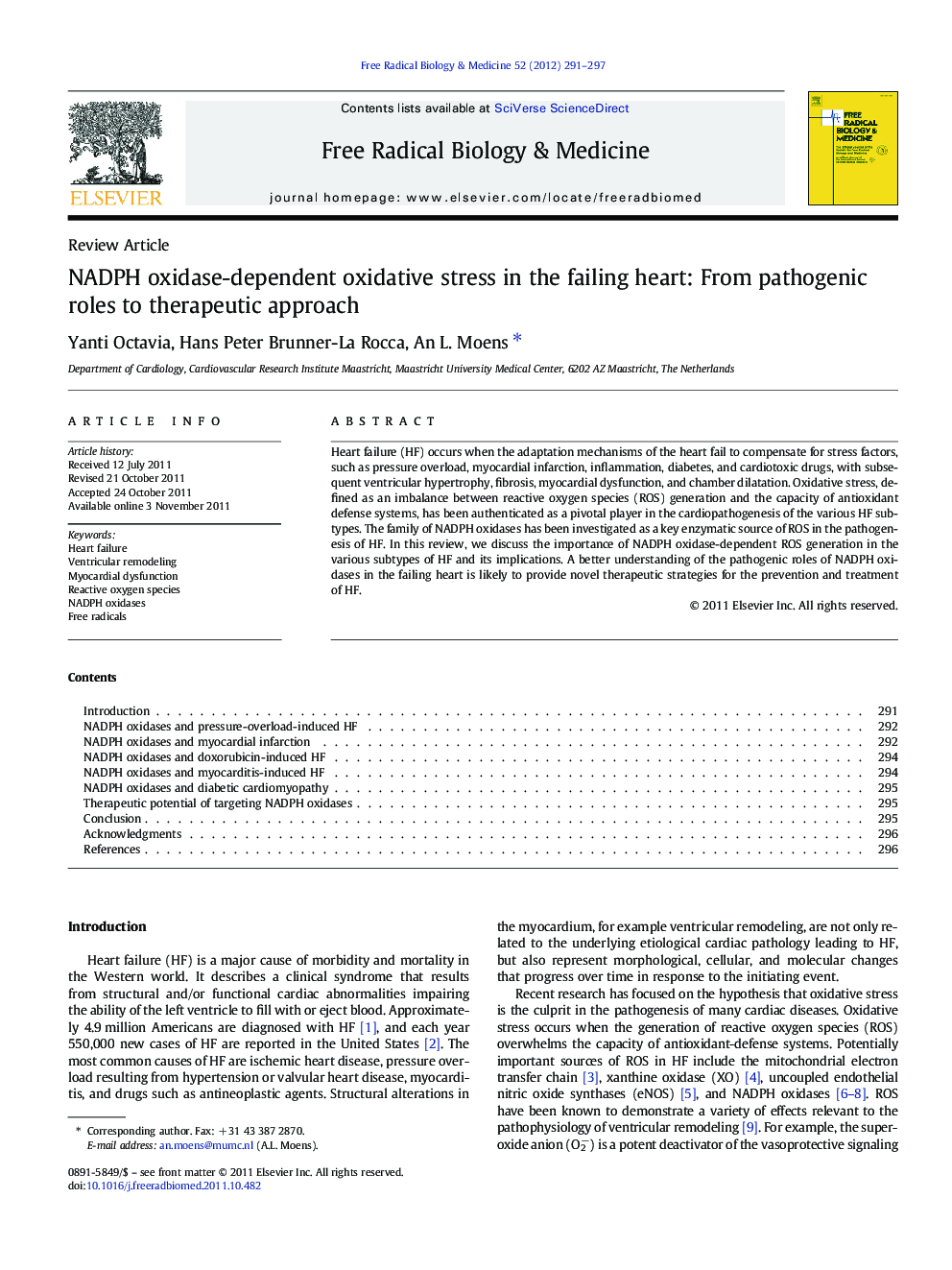| Article ID | Journal | Published Year | Pages | File Type |
|---|---|---|---|---|
| 1908930 | Free Radical Biology and Medicine | 2012 | 7 Pages |
Heart failure (HF) occurs when the adaptation mechanisms of the heart fail to compensate for stress factors, such as pressure overload, myocardial infarction, inflammation, diabetes, and cardiotoxic drugs, with subsequent ventricular hypertrophy, fibrosis, myocardial dysfunction, and chamber dilatation. Oxidative stress, defined as an imbalance between reactive oxygen species (ROS) generation and the capacity of antioxidant defense systems, has been authenticated as a pivotal player in the cardiopathogenesis of the various HF subtypes. The family of NADPH oxidases has been investigated as a key enzymatic source of ROS in the pathogenesis of HF. In this review, we discuss the importance of NADPH oxidase-dependent ROS generation in the various subtypes of HF and its implications. A better understanding of the pathogenic roles of NADPH oxidases in the failing heart is likely to provide novel therapeutic strategies for the prevention and treatment of HF.
Graphical abstractFigure optionsDownload full-size imageDownload high-quality image (221 K)Download as PowerPoint slideHighlights► Oxidative stress is a major player in heart failure ► NADPH oxidases play critical roles in the pathogenesis of heart failure ► NOX2 and NOX4 are the most abundant NOX subtypes in cardiomyocytes ► NADPH oxidases can be a potential therapeutic target for heart failure
